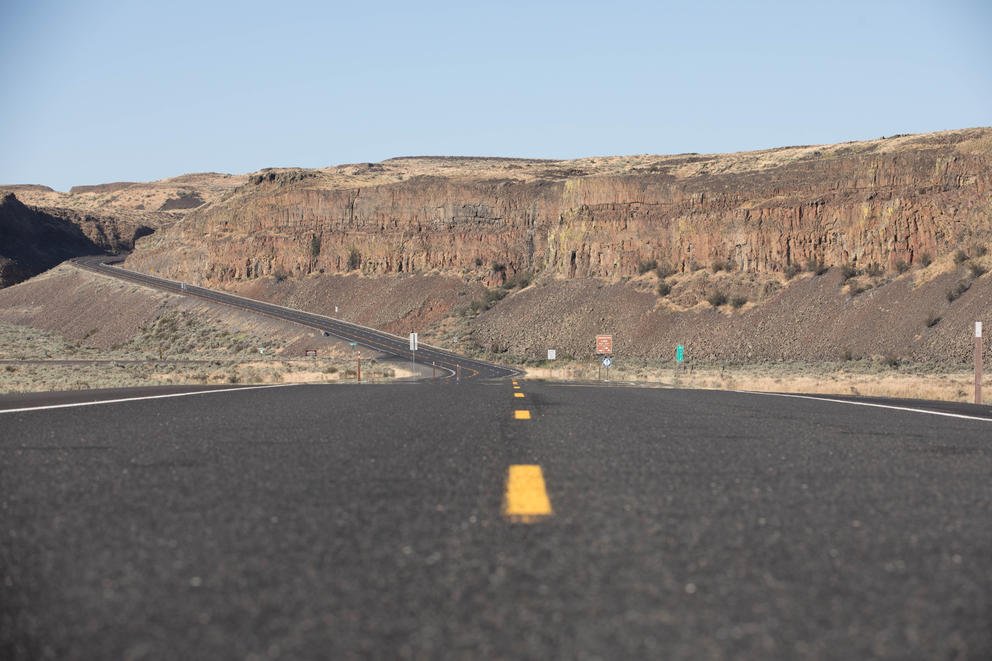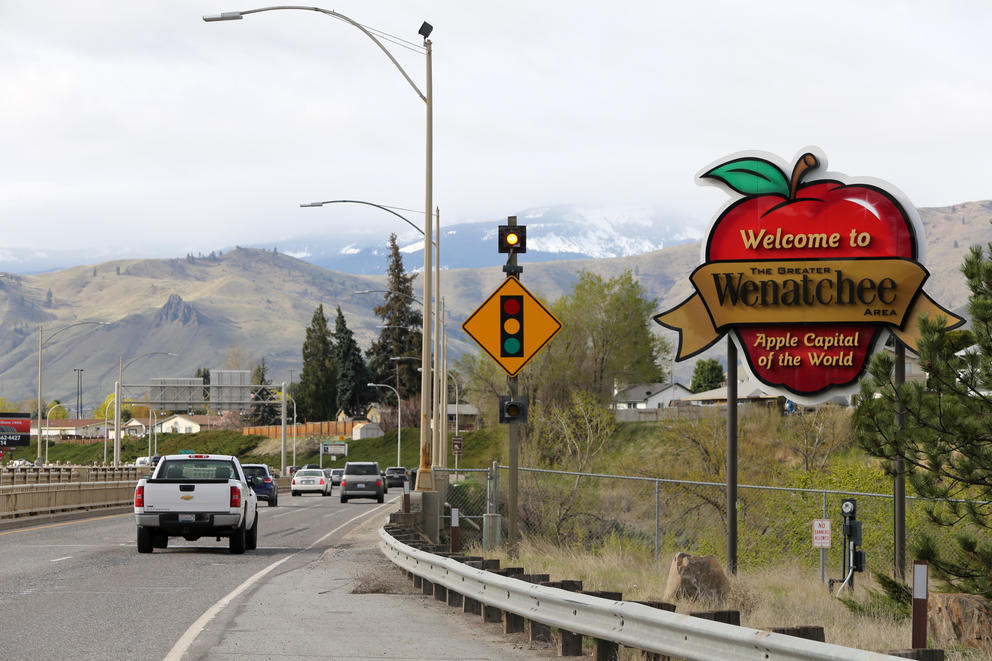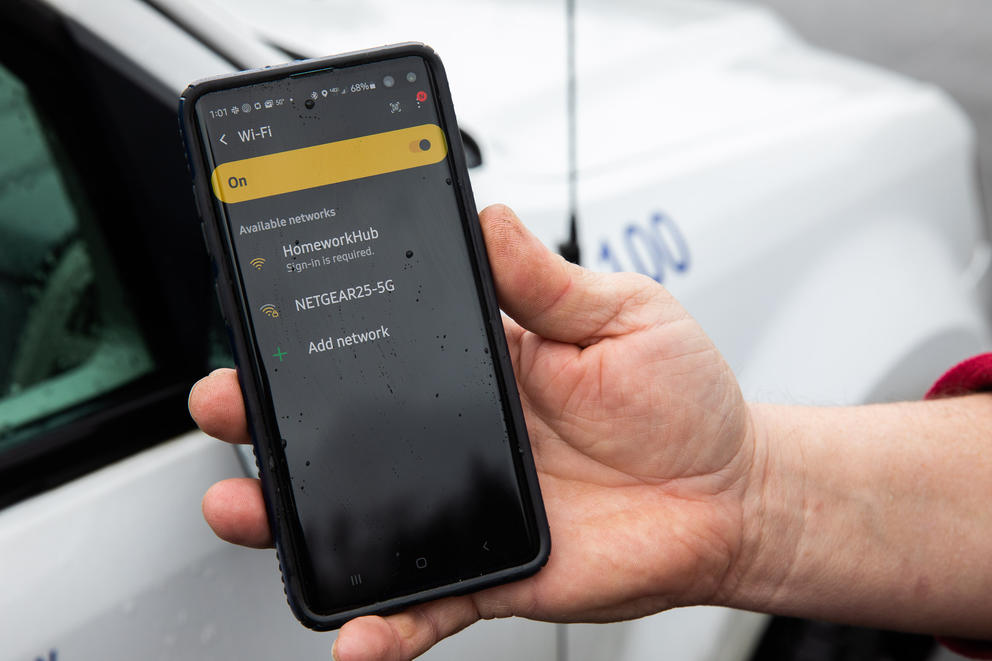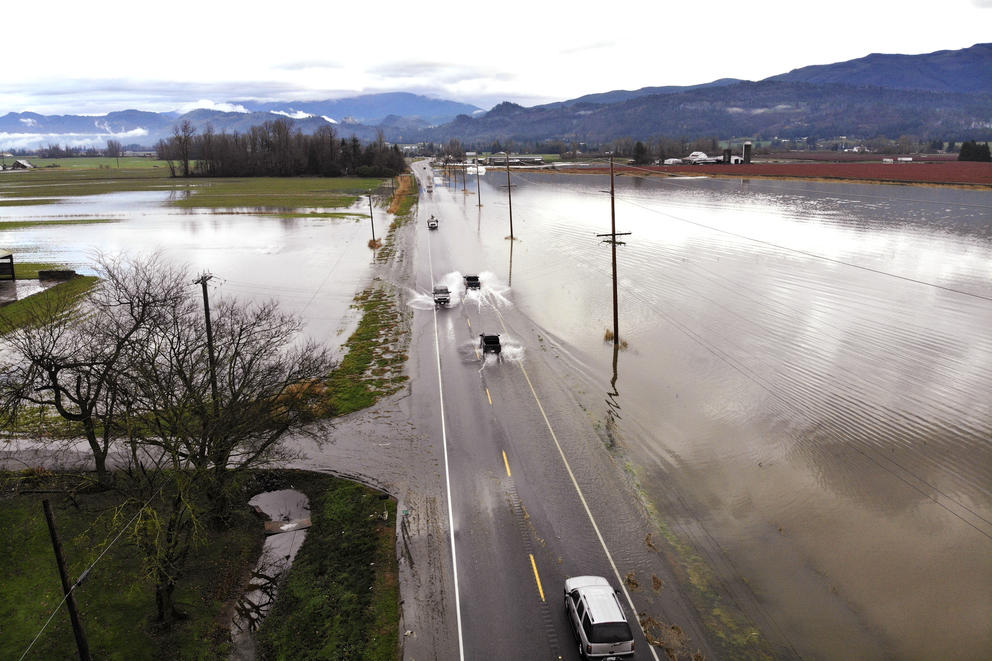City leaders say the project would reduce congestion, improve bus service, upgrade trails along waterfront natural areas and provide a third escape route in case of wildfire evacuations.
But with state Democrats rolling out a proposed 16-year, more than $16 billion transportation package last week, Kuntz worries he might have to wait another 10 years to pay for it.
Of $4 billion allocated to new and existing highway projects in the transportation proposal before the Legislature this year, just $2.5 million (less than 1%) goes to projects east of the Cascades.
"We always figured this would get funded," Kuntz said of the parkway project. "Lo and behold, there's nothing. ... That is a tough pill to swallow."
Lawmakers say they feel an urgency to push money out into communities and make historic investments with the influx of one-time federal infrastructure dollars.
Gov. Jay Inslee in December proposed a $62 billion supplemental budget that calls for billions in new spending mid-budget cycle as state tax revenue has rallied and federal infrastructure money has started coming from Congress. Lawmakers also look to spend more than $1.2 billion in remaining federal relief funding to keep the state's recovery on course.
The short, 60-day legislative session means there will be a more limited budget debate than last year. But state legislators have started drafting spending bills to direct state and federal funds into specific projects and programs.
Local leaders around the state say they are watching where those dollars go, as they make their own decisions on how to use federal recovery money to rebuild their communities. While local cities and counties have control over how some federal infrastructure dollars can be spent, they must wait for the Legislature to decide how the rest of the billions in transportation stimulus money will be distributed.
"This is a once-in-a-generation opportunity," Kuntz said.
Many cities in Washington put out legislative priorities each year, outlining their top projects and policies for state support. Officials in Seattle and Spokane have asked lawmakers to enact criminal justice reforms, support affordable housing and improve mental health services. Cities also often rank local capital projects in need of funding.
Rural communities have prioritized additional state dollars for economic development, water treatment systems, broadband networks, mental health services and flood control measures. Smaller cities and counties have also asked for more predictable shared revenue and flexibility on local tax options.
The city of Pasco has asked for additional state money to improve its downtown walkability and public spaces, along with key highway improvements. The city of Sequim has asked for mental health support and key highway improvements. Highways still rule rural transportation, with many cities seeking state dollars to pay for local projects.
The Association of Washington Cities, a nonpartisan organization representing the state's 281 cities and towns, sent top budget writers a letter last month requesting additional money for public works and transportation projects at the local level.
"The key to many of these legislative priorities is also ensuring there's state investment," said Brandy DeLange, a government relations advocate at the Association of Washington Cities. "We certainly need support from the state on many of these issues, whether it's homelessness or transportation or infrastructure."
The Washington State Association of Counties, a joint advocacy organization for the state’s 39 counties, has also asked the state to increase investments in local infrastructure, affordable housing, broadband access and public health efforts.
Unlike previous federal stimulus or relief programs, the American Rescue Plan Act provided cities and counties with direct funding that they can spend on replacing lost revenue or making their own targeted investments. Congress also resurrected earmarks after a decadelong ban to streamline federal funding to local projects.
Local leaders have a couple years to spend their direct American Rescue Plan funding, but will be juggling how to combine or leverage those dollars with state support, as well as federal dollars the state will distribute.
Michael Moore, an IT Construction Coordinator at Grays Harbor Public Utility District checks his phone for a wireless internet signal he placed at Olympic Stadium in Hoquiam, Washington on March 4, 2021. The HomeworkHub network is designated in various places throughout the county as a place where students and families without reliable internet can visit for a connection. (Matt M. McKnight/Crosscut)
Democrats introduced a wide-ranging transportation package on Feb. 8 that would allocate billions to public transit, electrifying ferries, pedestrian safety measures, carbon reduction, new bridges and rail systems. The package draws on new state energy and fuel-export taxes, as well as $3.4 billion in federal infrastructure funding.
Legislators received a final revenue forecast Wednesday and will use that information to move forward in the next week on supplemental operating and capital budget proposals.
"The budget priorities are largely focused on continuing the recovery," said state Sen. Christine Rolfes, D-Bainbridge Island, the Senate's lead budget writer.
Rolfes expected public health and education would remain high priorities for additional funding. School districts need money for nurses, counselors and other support roles, as declining enrollment has cut into their budgets.
The Legislature would also likely support Inslee's housing and homeless agenda, she said, by making additional money available to local governments and nonprofits.
Some remaining federal relief dollars must be spent this year, she said, and other money is earmarked for helping keep child care centers open. Lawmakers plan to allocate many of those by the end of the session on March 10.
"Right now we know we have the needs," Rolfes said.
In a recent Crosscut/Elway Poll, voters indicated they want state lawmakers to focus on action that promotes economic recovery and addresses the pandemic.
Local leaders have voiced support for additional affordable housing and public health efforts. Elizabeth Chamberlain, deputy city manager of Walla Walla, said the city would like continued funding for its temporary shelters and transitional housing.
Chamberlain said city officials support many of the public transit and pedestrian safety programs included in the proposed transportation package, but they also need funding for regional highway projects. The city has lobbied for money to widen and improve sections of Highway 12 between Walla Walla and the Tri-Cities in addition to local roadway projects.
"We're disappointed that Eastern Washington was left out," she said.
Chamberlain said she did not see any new or existing highway projects in her legislative district or the greater Inland region in the proposed transportation budget. A close look at the list, however, shows a $2.5 million road improvement project near the Colville Reservation, nearly 200 miles away in northeast Washington.
Two other projects — $178.7 million to widen Interstate 90 through Snoqualmie Pass and $75 million to replace a bridge over the Columbia River at Hood River — arguably serve as cross-state corridors more than projects based in Eastern Washington.
Coastal communities in Grays Harbor and Pacific counties also missed out on proposed highway funding.
In this photo taken from a drone, traffic navigates a flooded highway headed into Sumas, Wash., Monday, Nov. 29, 2021. Weather officials are urging Northwest residents to remain alert because more rain is on the way to an area with lingering water from extreme weather from a previous storm. (AP Photo/Elaine Thompson)
The transportation package would still offer billions of dollars to many cities outside the Puget Sound region to pay for switching bus fleets to electric, fish barrier removal, safety programs, new bike trails and many other initiatives. About $151 million would go to railroad line rehabilitation in Eastern Washington.
While Republican lawmakers support many of the projects in the package, they have criticized the use of new taxes on energy companies and fuel exports. Transit authorities have also voiced concerns about uneven distribution of federal transportation dollars.
State Sen. Marko Liias, D-Lynnwood, chair of the Senate Transportation Committee, last week emphasized the package is still a draft, with potential to change according to input from around the state. He said he welcomed constructive suggestions.
"This is intended to invest in every community," he said. "It's really critically important that this have a measurable positive impact in every community across the state."
But local leaders would like to see support for their highway needs, as well as those project jobs. Kuntz, the Wenatchee mayor, said the federal government recently awarded $92 million toward the Confluence Parkway project, but the state has yet to kick in any cash.
"It's a pretty bad slap in the face," he said.
Some city leaders said they plan to meet with lawmakers this week to lobby for their local projects. Kuntz said he hopes he won't have to come back to make his case again next year.
"We're so close," he said.
Correction: A previous version of this story had the introduction of the transportation package on the incorrect date. It was introduced on Feb. 8.





